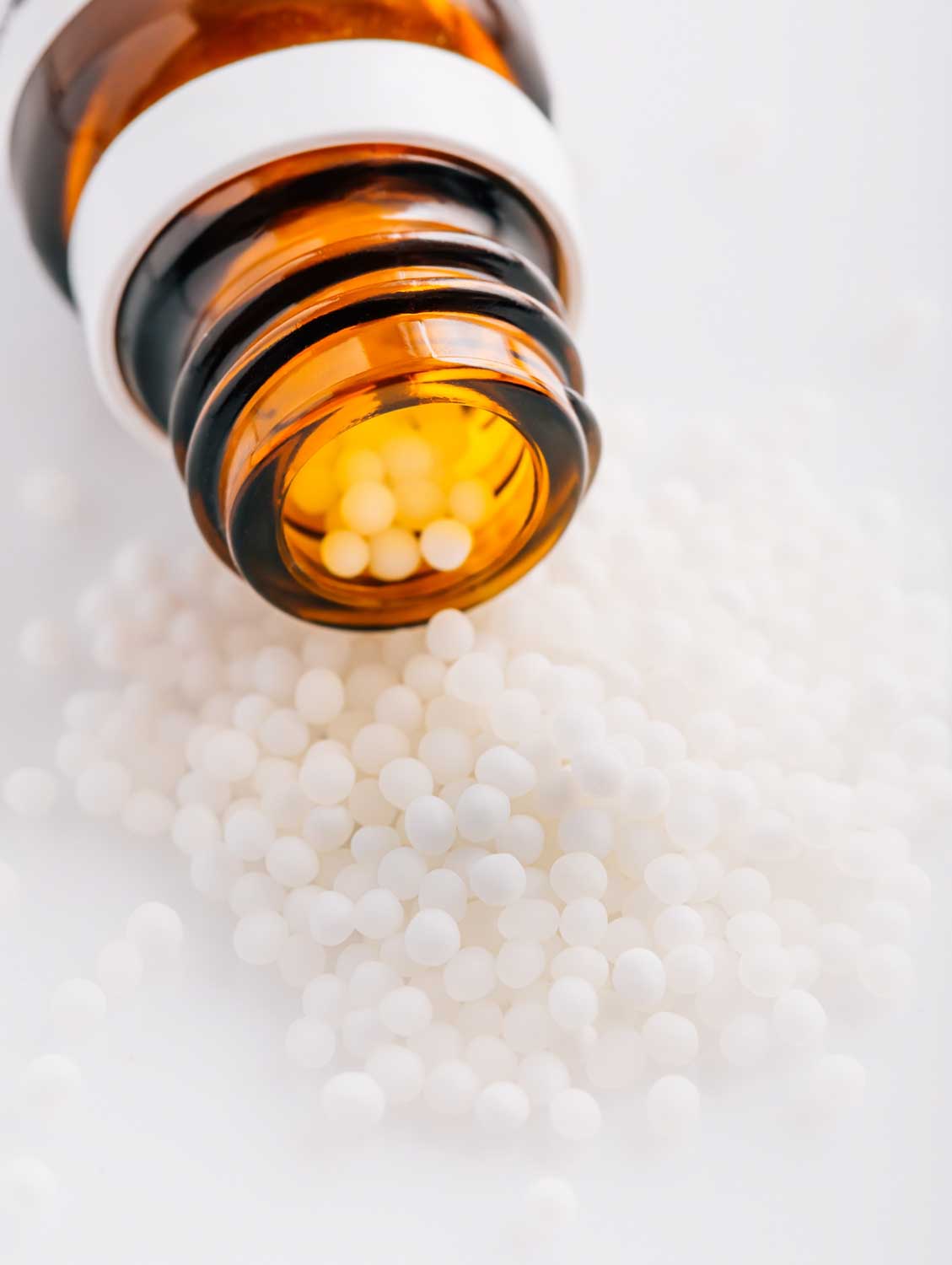Homeopathy
To stimulate self-healing
Homeopathy is a therapeutic method based on the principle of similarity, i.e. “like cures like”. This means that a substance that would cause certain symptoms in a healthy person in high doses can treat the same symptoms in a sick person in highly diluted and dynamised doses.
Homeopathy was developed in the late 18th century by the German doctor Samuel Hahnemann, who discovered how infinitesimal doses of a substance can stimulate the body’s self-healing powers without causing side effects.
Homeopathic remedies are made from substances of plant, mineral or animal origin that are repeatedly diluted and shaken in a process known as “dynamisation”. It is believed that this process not only reduces the toxicity of the substance, but also increases its energetic effectiveness so that it becomes active at a deeper level.
Due to its gentle and individualised nature, homeopathy is particularly suitable for children, the elderly and people with sensitivities or intolerances to conventional medicines. In addition, homeopathy, like phytotherapy, can be combined with other natural therapies to promote a holistic approach to a person’s wellbeing.


